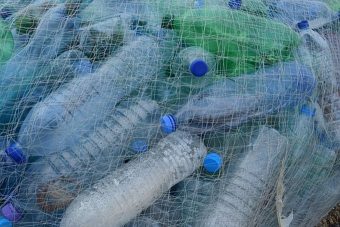
Plastic pollution is one of the greatest burdens to the environment. Believe it or not, enough plastic is discarded every year to circle the globe four times. Even worse, it is estimated that 50 percent of the plastic on this planet is used only once before being thrown away. To curb the issue of plastic pollution, the city of San Francisco has just done something monumental: it has become the first in America to ban the sale of plastic water bottles. The move is building a global movement to reduce the huge amount of waste from the billion-dollar plastic bottle industry which is taking a toll on the environment. Over the next four years, the ban will phase out the sales of plastic water bottles that hold 21 ounces or less in public spaces.
A waiver is permissible if an adequate alternative water source is not available, reports Global Flare. Think Outside the Bottle campaign, a national effort that encourages restrictions of the “eco-unfriendly product,” was one of the largest supporters of the proposal. While the San Francisco ban is less strict than the full prohibitions passed in 14 national parks and a number of universities in Concord, Massachusetts, it is a step in the right direction. Those who violate the ban could face fines of up to $1,000. That’s certainly an incentive to invest in are usable glass bottle. The ban is “another step forward on our zero-waste goal,” said Joshua Arce, the chairman of the Commission on the Environment.
Please look here for campaign flyer: think_outside_the_bottle_flier
“We had big public events for decades without plastic bottles and we’ll do fine without them again.” This isn’t the first effort by the city to curb plastic pollution. In the past, San Francisco banned plastic bags and plastic foam containers. By 2020, the city aims to have no waste going to its landfill. Its diversion rate now stands at 80 percent. What did the American Beverage Association, which includes Coca-Cola Co. and Pepsi Co, have to say about the plastic bottle ban? The ban is “nothing more than a solution in search of a problem. This is a misguided attempt by city supervisors to decrease waste in a city of avid recycles.” San Francisco may be more recycle-happy than other cities, but plastic pollution needs to be curbed. Perhaps in the future, other cities will follow the city’s bold lead and phase out plastics completely.
Source: http://www.plasticpollutioncoalition.org

